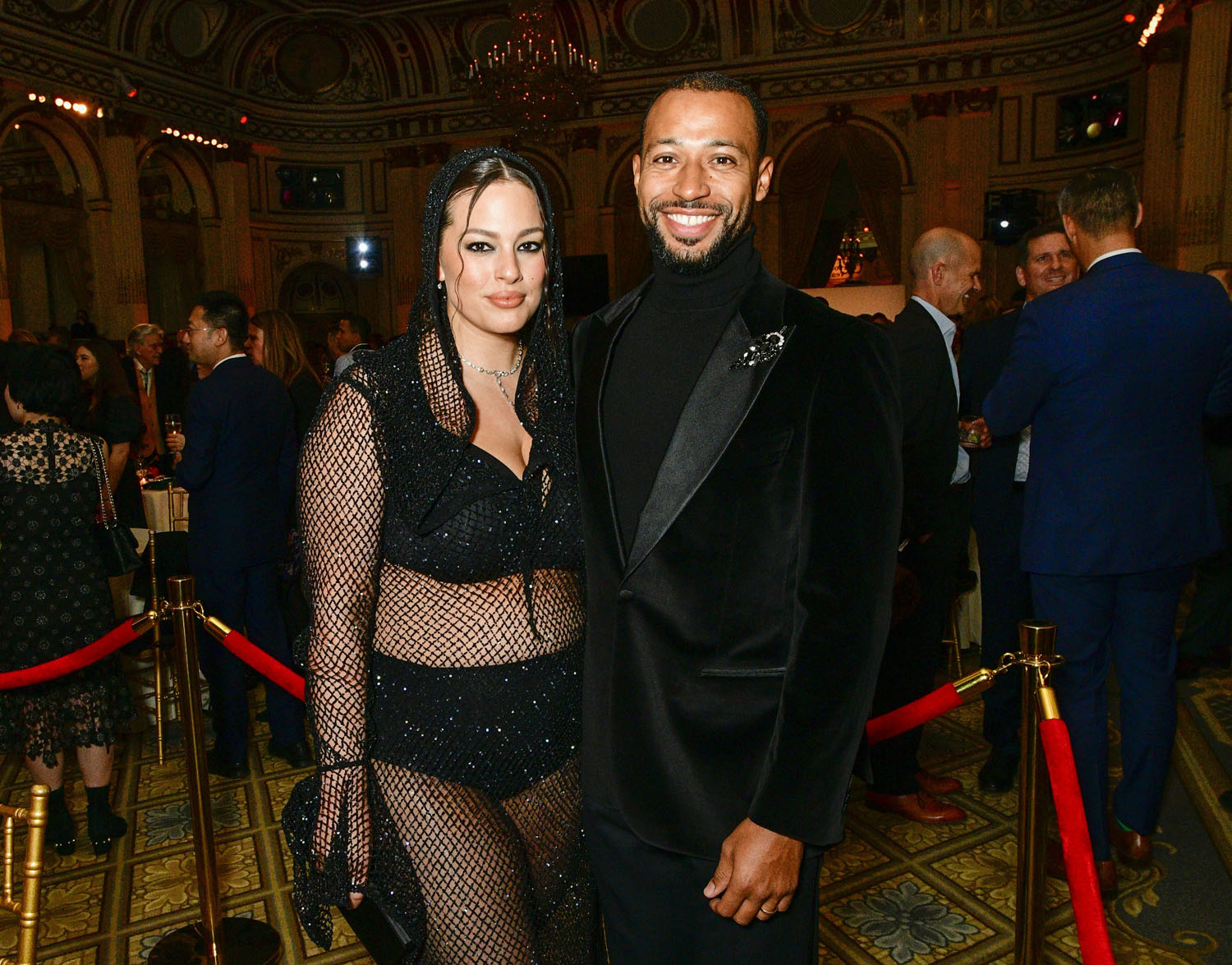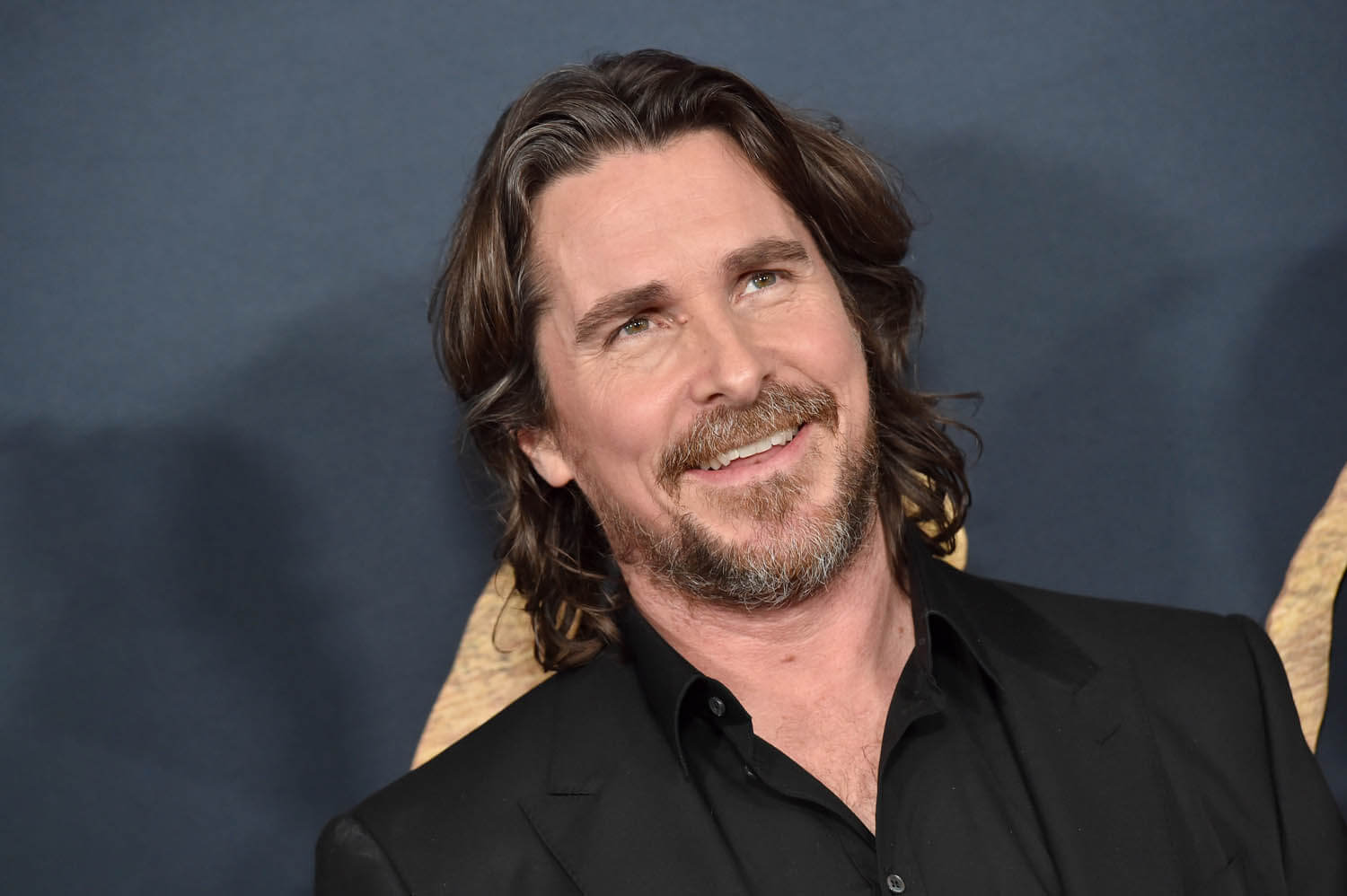Ashley Graham's work



People have been talking about Ashley Graham on social media lately after self-proclaimed “anti-woke journalist” Sameera Khan shared photos of Ashley in a dress in a now-deleted tweet that read, "The fat positivity movement is getting out of hand."
Ashley went on to a different photo of her in the dress, encouraging people to share photos of themselves taking fat positivity “too far”. Currently, it has more than 10,000 retweets and hundreds of comments of people sharing photos and expressing support.
Quote tweet this with a photo of you taking 'fat positivity' too far. I'll start. pic.twitter.com/WlmyYr13Kh
— Ashley Graham (@ashleygraham) December 19, 2022
But then the conversation went in another direction with some suggesting that Ashley is benefitting from a movement Black women created – and then to concerns over how she went about bringing her husband, who is Black, around her family for the first time.
A Twitter user published a thread suggesting Ashley has the career that Black fashion model and former America’s Next Top Model star Toccara Jones deserves.
Toccara Jones walked so Ashley Graham could run.
— Ola Ojewumi (@Olas_Truth) December 20, 2022
She has the career Toccara deserves. I'm not here for crediting fat white models for a body-positive movement created by Black women. They're rewarded for what we are condemned for. pic.twitter.com/jyn9Aw9sar
The user went on to say that they had never seen Ashley “acknowledge or use her white privilege to confront racism in plus-size modelling or the body positivity movement,” saying she’s a “privileged white woman who pretended she didn’t know racism existed until she met and fell in love with a Black man.”
Her last statement is alluding to a story that originally came out in 2017, around the release of Ashley’s book A New Model: What Confidence, Beauty and Power Really Look Like. An excerpt of the book that was shared before the release detailed Graham’s recollection of a time when her family didn’t approve of her relationship with now-husband Justin Ervin because he was Black.
She described growing up in Nebraska in a mostly-white town – and a cold reception to Justin when she brought him home.
"I never told my grandparents that the man I was bringing home was black," the excerpt read. "I naively hoped everyone would be color-blind - which is not what happened. When my grandparents met Justin, my grandmother was cordial but cold. She greeted him and immediately walked away. When it came time for them to leave, my grandparents didn’t even acknowledge him. Instead, my grandmother looked me in the eye, with Justin standing behind me, and said, 'Tell that guy I said goodbye.'”
She describes the “shock” of seeing her grandmother be so hurtful and racist, while Ervin reacted by saying, "Racism is never surprising but always disappointing.”
The Twitter user went on to say that Ashley not informing her family her boyfriend was Black was racist in itself – and that watching him being treated like he’s less than human is not a reflection of her being the equality icon she’s touted to be, before finally suggesting Justin is a “fool” for marrying into an anti-Black family.
Reading this thread, I had a rollercoaster of responses. Some statements I agreed with, some I learned from, some I rejected, and others left me feeling torn. Particularly the idea that someone is a fool for marrying into a family that may not be accepting of them – and going on to have kids with the member of that family that you’ve fallen in love with.
My mom, who is white, married her first husband, who is Black, back in the 80s. Her parents refused to attend her wedding because of this, and her dad always insisted that if she had kids with a Black guy, that my sisters and I would come out “looking like Dalmatians.” Two kids later and a few years after her marriage, she had to file for divorce due to the physical abuse she suffered, and she was so afraid to tell her parents about the abuse and the divorce because she didn’t want to hear them say, “I told you so”.
Luckily, though, after moving to a new city with my two sisters and $40 in her pocket, she was able to reconnect with my dad. By this time, both her parents had passed away – both without ever having told her that they loved her. She was also estranged from her siblings, and though I love my aunts and uncles dearly, I know that it’s hard to grow up in a racist home and not end up a racist, yourself. Unless someone is actively doing the work to rid themselves of biases and prejudice not only baked into them in their private sphere, but also through the messaging we see in TV shows, movies and other mediums, chances are they will be of similar mindsets to those around them – who also happen to be the most influential.
My parents have been together for more than 30 years. They’ve navigated some serious speculation about their interracial relationship. Some of it is overt, like the time they walked with my sisters and me in the mall and a woman came up to my dad and tried to figure out which of us were his and which of us were my mom’s kids from a previous relationship. Other times it’s been subtle, like the women in the Caribbean restaurant treating my dad better when he goes in there without my mom, or the conversations about “trailer trash” that happen when people don’t know his wife is white. There have been so many other examples, 30 years is a long time. What I’m saying is – being in an interracial relationship, one that is rooted in true love, anyway, is not a choice for the weak.
But the Twitter user expressed some doubt about Ashley and Justin’s relationship is about love – and suggested that perhaps it’s about fetishization.
“When Ashley Graham talks about her Black husband, it's in a creepy sexual Black male fetishization way. She says the secret to success in her marriage isn't love, support, or partnership. It's ‘sex all the time,’” read another tweet in the thread.
This tweet refers to a previous interview Ashley did with Elle. When she was asked how she keeps her relationship with Justin fresh, Ashley replied:
“Just have sex! Have sex all the time. Even if you don’t feel like it, just have sex. I have found that if we haven’t had sex, we get snippy, and then if we are having sex, we’re all over each other. For us it’s like, ‘Oh, let’s have sex.’ And then we’re just right back in a great mood.”
I get it – Black men are often hypersexualized. Black people in general experience the adultification bias. But I don’t feel like it’s fair to question the nature of Ashley and Justin’s relationship based on a tongue-in-cheek remark that more than anything shows that Ashley is a sexual person at her core. They’ve been together for more than a decade, they share children together, and they seem to be going strong …so let there be sex!
The first user who called Ashley out over her not using her platform and privilege to spotlight racism in the plus-size modelling industry got me thinking. So I scrolled back to her Instagram to see what it was like in 2020 when everyone was on their woke sh-t. Besides this post that doesn’t really say much, I don’t see anything that indicates tackling racism in the plus-size modelling industry is a top priority of hers. In the same post, she got dragged in the comments for not addressing human trafficking, which, according to some, is the “real” issue. Is anything anyone does ever going to be enough? Do the inherent problems with racism in the plus-sized modelling industry fall squarely on Ashley’s shoulders?
Recently, a question was posed to people on Twitter who consider themselves close to their parents, enough so that they want to spend time with them, about what they did to make you want to still be around them. I responded that it’s not so much about what they did, but more about me becoming an adult and realizing that they are flawed human beings like the rest of us, and that becoming more empathetic with time has softened my view of them. A huge part of being empathetic is being patient enough to acquire all the context you can in order to make a fair judgement.
Do I think Ashley’s hopes that her family would be colourblind are dangerous? Yes. Do I think she knew how to approach bringing a Black man home for the first time? Nope. Do I think it made for an awful time for her husband? Yes. But am I happy to see that they’ve figured it out and that her racist family has made some changes? Absolutely.
And why is it impossible to believe that Ashley didn’t know much about racism before dating Justin? It’s similar to the anecdotes I’ve heard from countless African friends who move to Canada that say they never experienced racism back home. Why? Because everybody there was Black. In the town of Lincoln, Nebraska where only 4% of the population identifies as Black (and that’s in 2022), it’s not that hard to believe that it wasn’t something that was a topic of conversation in her home or community.
But do I still think she could be doing more to help spotlight the racism in plus-size modelling? Yes. And I certainly hope that she starts using her platform to do so more actively. But I also admire what she’s done to encourage people to get out and vote, to normalize breastfeeding in public – if you so desire – and I love that she celebrates her body and her stretchmarks.
I’ve said it before and I’ll say it again: context is important. Despite all the names I called my mother when I was younger, learning about her growing up in a loveless home and not ever being told “I love you” by her parents, not being supported by them, experiencing abuse in her first marriage and trying to balance motherhood at the same time, I can extend a lot more grace to her. And despite feeling like Ashley could do a bit better on some fronts, learning about what she and her husband had to navigate through to be together today, seeing her spread messages that for the most part empower people, I can appreciate the work she has done and extend some grace to Ashley, too.
